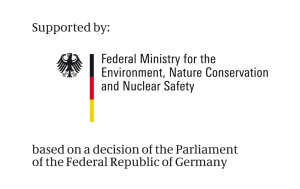Current Projects
2020
C•THRU carbon clarity in the global petrochemical supply chain
C-THRU is a 3-year, US$4m, international research project which aims to deliver foresight on the future interventions and innovation opportunities in the petrochemical sector required to minimize greenhouse gas (GHG) emissions. This will be achieved by delivering the world’s most comprehensive, reliable and transparent account of current and future emissions for the global petrochemical sector. This account and the underlying modelling methods, tools and data will support strategic policy and business decision-making to promote the sustainability of the petrochemical sector, making it compatible with climate change mitigation goals.
Dr. King’s role in the research is to incorporate the petrochemical industry into a macroeconomic model such that we can understand the economic feedbacks (debt, costs, wages) of low-carbon changes to that industry.
Project Website: c-thru.org
Project Duration: 2020 – 2023
Past Projects
2017-2020
The Energy Infrastructure of the Future Study (EIoF) (Energy Institute, University of Texas at Austin)
Interdisciplinary initiative to understand the cost and impacts of changing the mix of technologies used to provide energy within the United States.
The flagship product is the online interactive Energy Futures Dashboard. This interactive product was developed by the Energy Institute to illustrate future pathways of energy infrastructure by leveraging insights from research and data from multiple federal agencies. The dashboard allows users to create their own scenarios for one of 13 U.S. regions for the year 2050. By varying the range of inputs and selections, users can produce energy infrastructure models with three key objectives: the mix of electricity generation sources, the percentage of light-duty vehicles that are electric, and the percentage of households heated by natural gas and electricity.
See the EIoF website for a disclosure of sponsors.
Project Duration: 2017 – 2020
2017
The Full Cost of Electricity (Energy Institute, University of Texas at Austin)
Interdisciplinary initiative to identify and quantify the full-system cost of electric power generation and delivery – from the power plant to the wall socket – to inform public policy discourse with comprehensive, rigorous and impartial analysis.
Deliverables (Calculators, Papers, and Data): see https://energy.utexas.edu/policy/fce
Project Duration: 2014 – 2017
2016
Integrated Modeling of the Land Use, Water, and Energy Nexus of Brazilian Biofuels Expansion under Climate Change 
Project Website: http://clima.org.br/en/
Twitter: @clima_brpt
Project Duration: May 2013 – December 2016
Collaborators:
- The Interdisciplinary Laboratory for the Environment (COPPE/LIMA) at the Federal University of Rio de Janeiro
- Institute for International Trade Negotiations (ICONE)
- Center for Sustainable Water Resources (Dr. Bridget Scanlon) at the Bureau of Economic Geology at The University of Texas at Austin
CLIMA is a research platform seeking to inform Brazilian and international stakeholders on the social and environmental impacts of biofuels expansion in Brazil.
The platform relies on integrated modelling and interdisciplinary research of energy, land use and water topics. Using a broad set of policy scenarios until 2030 we aim to identify possible synergies between those sectors while avoiding negative trade-offs, for example, impacts on food demand prices due to increasing demand for biofuels. CLIMA covers a broad set of issues, from local to macroeconomic scale: water resources and availability for biofuel feedstock production under drought, potential for food versus fuel competition, or the effectiveness of new second-generation biofuel technologies to mitigate deforestation pressures and other land issues.
The time frame for our focus is 2030. Therefore, CLIMA integrates climate impacts on crop productivity to also understand medium-term adaptation needs in biofuels and agriculture sectors.
2014
System-wide Assessment of Long-term Macroeconomic and Energy Trends
Duration: January 2014 – December 2014
Sponsor: Energy Theme of the Jackson School of Geosciences, 
2013
Principles for Protecting Freshwater Resources and Biodiversity during a Low-Carbon Energy Transition
Duration: July 2012- December 2013
The Energy-Water Nexus of Maui Island
Duration: May 2010 – August 2013
Collaborator: Dr. Michael Webber of The University of Texas at Austin
Economics of Large-Scale CO2 Capture, Utilization, and Storage Systems in The Texas Gulf Coast
Duration: 2009 – 2013
Collaborators:
- Gulf Coast Carbon Center of The Bureau of Economic Geology (Univ. of Texas at Austin)
- Center for Energy Economics of The Bureau of Economic Geology (Univ. of Texas at Austin)
Community Greenhouse Gas Plan for Austin and Travis County
Duration: January 2013 – July 2013
Collaborators:
- City of Austin Office of Sustainability
- Dr. Michael Blackhurst of The University of Texas at Austin
Sponsor: City of Austin Office of Sustainability
Current and Past Sponsors
To maintain clarity and avoid issues related to conflicts of interest, the following is a list of current and past project sponsors of research and/or consulting projects in which Carey W. King has been involved (in alphabetical order):
- Austin, City of – Office of Sustainability
- Cynthia and George Mitchell Foundation
- Department of Energy (United States)
- Energy Institute of The University of Texas at Austin (via various donors)
- Chevron
- ConocoPhillips
- Dow
- Environmental Defense Fund
- ExxonMobil
- Shell
- Toyota
- Wal-Mart
- Federal Ministry for the Environment, Nature Conservation, Building and Nuclear Safety (Germany)
- International Development Research Centre
- Jackson School of Geosciences (University of Texas at Austin)
- Power Across Texas
- Texas State Energy Conservation Office (State of Texas)
- Texas Water Development Board (State of Texas)
- The Nature Conservancy
- The World Bank
- Ulupono Initiative
- V. Kann Rasmussen Foundation



